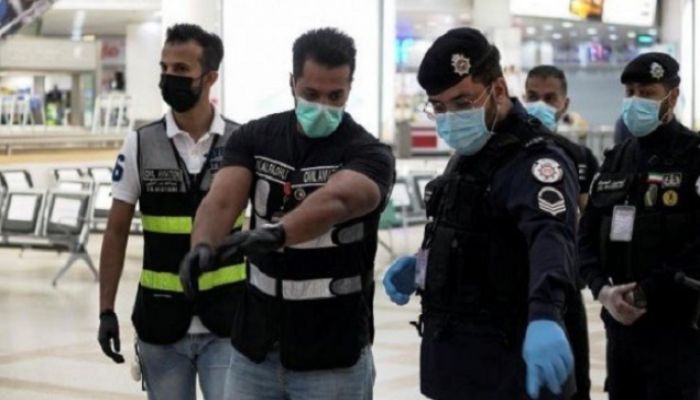
Desk Report
Publish: 18 May 2020, 06:28 pm

Qatar has started to implement the world's toughest sentences of up to three years in jail for failing to wear masks in public, as it battles against one of the world's highest rates of coronavirus infection.
The Qatari authorities have been administering this severe punishment since the coronavirus outbreak in this gulf country started on Sunday.
More than 30,000 people tested positive for COVID-19 in the tiny Gulf country-1.1% of the population of 2.75 million, but only 15 people died.
According to the European Organization for Disease Prevention and Control, even the micro-states of San Marino and the Vatican had higher rates of infection per capita.
Violators of Qatar’s new rules will face up to three years in jail and fines of as much as $55,000
Drivers alone in their vehicles are exempt from the requirement, but several expats told AFP that the police were stopping cars at checkpoints to warn them of the new rules before they entered into force.
The wearing of masks is currently mandatory in around 50 countries, although scientists are divided on their effectiveness.
Authorities in Chad have made it an offence to be unmasked in public, on pain of 15 days in prison. In Morocco similar rules can see violators jailed for three months and fined up to 1,300 dirhams ($130).
Qatari authorities have warned that gatherings during Ramadan may have increased infections.
Abdul Latif Al Khal, the co-chair of Qatar’s National Pandemic Preparedness Committee, said Thursday that there was “a huge risk in gatherings of families” for Ramadan meals.
“(They) led to a significant increase in the number of infections among Qataris,” he said.
Neighboring Saudi Arabia will enforce a round-the-clock nationwide curfew during the five-day Eid Al Fitr holiday later this month to fight the coronavirus.
Mosques, along with schools, malls, and restaurants remain closed in Qatar to prevent the disease’s spread.
But construction sites remain open as Qatar prepares to host the 2022 World Cup, although foremen and government inspectors are attempting to enforce social distancing rules.
Officials have said workers at three stadiums have tested positive for the highly contagious respiratory virus. Masks have been compulsory for construction workers since April 26.
Tens of thousands of migrant workers quarantined in the gritty urban city of Doha after a series of infections had been reported there in mid-March, but the authorities have started to relax restrictions.
Khal said that most of the recent cases were among foreign employees, while there has been an increase in infections among Qataris. He said that the country had not yet hit the height of its contagion.
Source: Gulf News
Subscribe Shampratik Deshkal Youtube Channel
© 2024 Shampratik Deshkal All Rights Reserved. Design & Developed By Root Soft Bangladesh